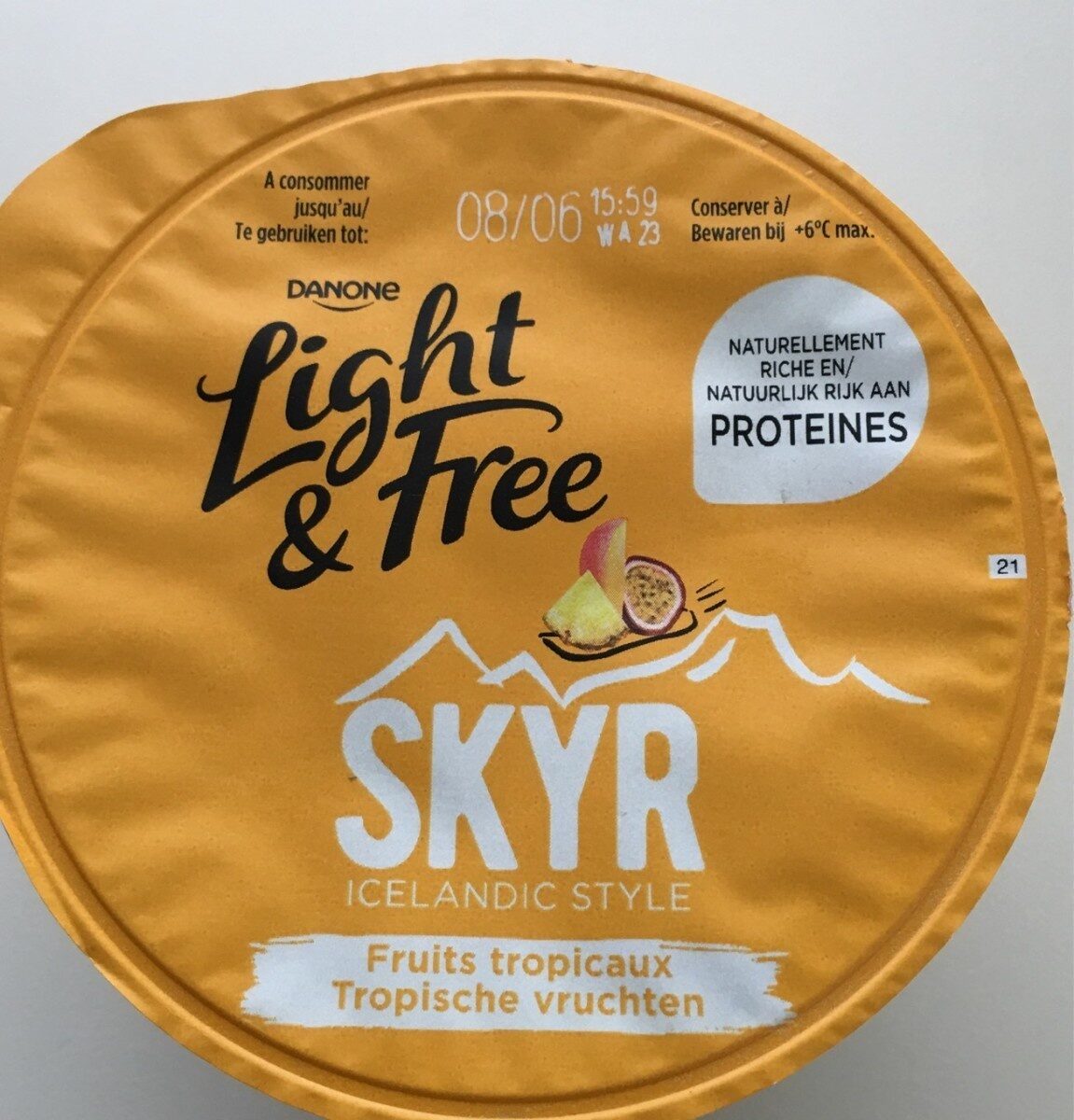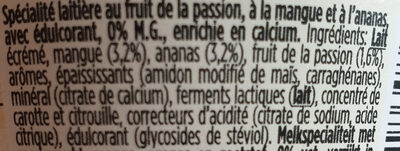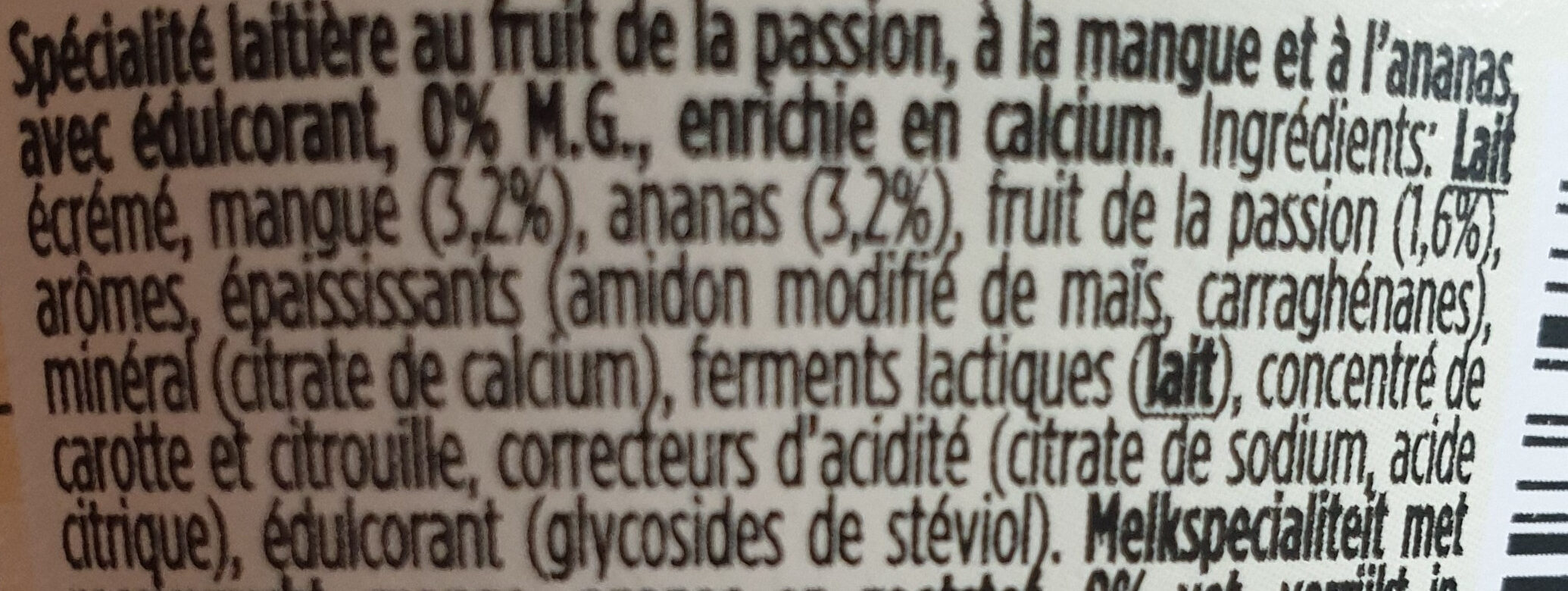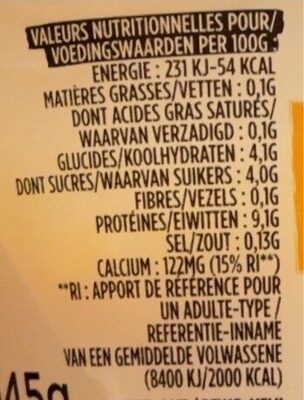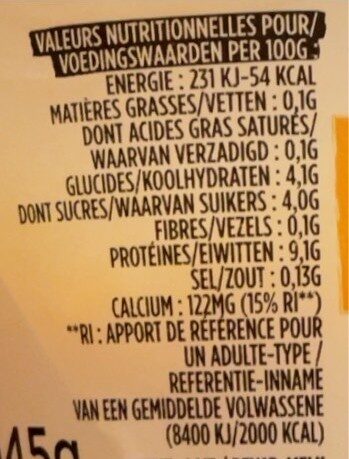Fruits tropicaux sans M.G. / Tropische vruchten - Danone - 145 g
This product page is not complete. You can help to complete it by editing it and adding more data from the photos we have, or by taking more photos using the app for Android or iPhone/iPad. Thank you!
×
Barcode: 5410146418648 (EAN / EAN-13)
Quantity: 145 g
Packaging: Pot
Brands: Danone, Light & Free
Categories: Dairies, Fermented foods, Fermented milk products, Desserts, Dairy desserts, Fermented dairy desserts, Fermented dairy desserts with fruits, Skyrs, Fruit skyrs
Labels, certifications, awards: Nutriscore, Nutriscore Grade A
Matching with your preferences
Environment
Carbon footprint
Packaging
Transportation
Report a problem
Data sources
Product added on by kiliweb
Last edit of product page on by alexfauquette.
Product page also edited by aleene, ecoscore-impact-estimator, inf, moon-rabbit, openfoodfacts-contributors, packbot, pietermealhero, quechoisir, quentinbrd, roboto-app, scanbot, virginiest, yuka.Du0aZMKKBM0FNsHPzZow8xS1T_zGJNpaSGFVow, yuka.FJt8MsfRQ_IxMcrgw70E1WCrHsrjG-BAFSNSow, yuka.K75iNv2IOpEcH8HV_a4q1gXiLfrJJKRaN2cUoQ, yuka.UUx0ZVNvb212NkVMcGM4RTVVL1A1b3huMXAyZ1RHYWxjL1pNSVE9PQ, yuka.YXBzcEw2WUhtY2N4dVBFNDBncUoxOVpYN2NhbmVFZnJLY2dhSVE9PQ, yuka.ZDUwNFBQc0l0K1FPdk1Zc3dEZk82TXh1NDZXbEJXV0lEZWdYSWc9PQ, yuka.sY2b0xO6T85zoF3NwEKvlhcafMfcuG7vHh7khRKxnc2iAsPvbdRS3NT2FKs, yuka.sY2b0xO6T85zoF3NwEKvlmJuTMDZuGrjDh3jyE-N-YmxK4e2S9Bc8LrZL6g.

